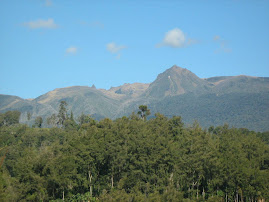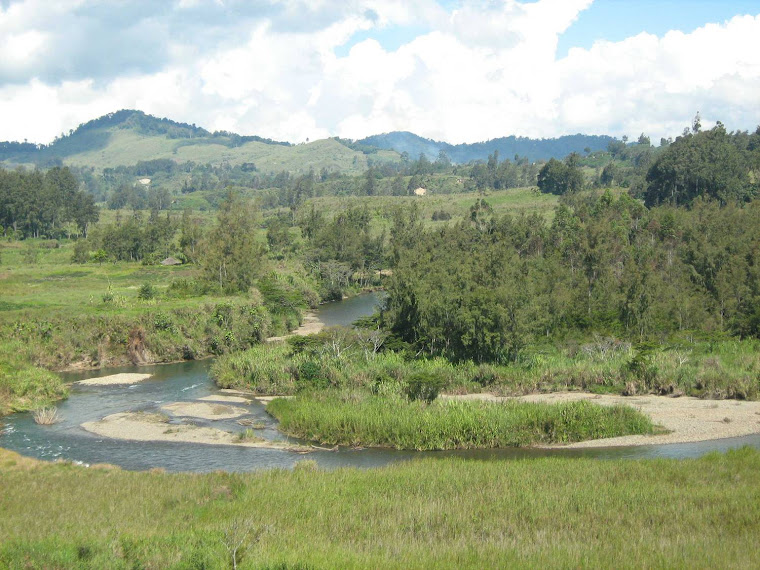Tony's article has been published under the new column with Sunday Chronicle, "Letter from China". More of such story/article will be wrtitten by Papua New Guineans in China.
................
By Tony Jack Manab in Beijing.
I AM grateful and offer compliments and thank you on behalf of the government of Papua New Guinea (PNG) to the Government of the People’s Republic of China (PRC) for the opportunity in allowing me to come to a dream place, China. I’ve always wished to set foot one day.
China is never a wonderland as some famous Hollywood TV stars would assert but a country that’s so friendly and beautiful.
I would like to dedicate this article as a token of appreciation and thank you to my boss Mr Frank Mohi Aisi, seniors and colleagues from the International Relations & Aid Oversight Unit of the Department of Prime Minister and National Executive Council and my family and friends in China and PNG for making this experience a reality.
Appreciation and thankyou to Mathew Yakai for this opportunity to have my article published under “Letter from China” column.
I am attending a two months Seminar on Economic Administration for Developing Countries at MOFCOM Institute for International Business Officials in Beijing which is fully funded by the Chinese Government.
This Seminar is part of the ongoing program to train 2,000 government officials and technical personnel from the Pacific Islands for capacity building to fulfil the commitment made by Premier of China, Wen Jiabao during the China–Pacific Islands Countries Forum for Economic and Development Cooperation in Fiji in 2006.
My experience in Beijing within the last three weeks and half is amazing and will remain a story and a lifetime experience I will never forget.
Never in a single day have I felt home sick because I am enjoying everyday’s programs and so far used to the humid days as its summer in Beijing.
What I am going to share with you is not everything but my general experiences in Beijing.
I begin by stating that the Chinese people are great and admit that I had negative perceptions about them (Chinese) before coming here.
Even on my first day of arrival in Beijing, I was so security consensus and thought it would be that way throughout the duration of the seminar.
However, being around in the country for only three and half weeks is like I was here for some good donkey years.
I am adhering that my negative perceptions about the Chinese people have totally changed. My experience about China is like discovering the other side of the coin which you don’t see unless you turn it around.
I have discovered that how we Papua New Guineans perceive the Chinese people in PNG is really different and contrary from the way they behave towards foreigners in China.
It is quiet amazing that the locals were so friendly that I now have lots of friends around. I began to see that the Chinese people really have a true spirit of unity and friendship.
There are always smiling faces everywhere and it’s like you can’t help it smiling when one says ‘ni hao’ (hello), like the famous English expression, ‘love is in the air so as unity and peace is always in the air in China.
No wonder China is developing rapidly because their development concept is based on unity and harmony.
The Chinese government emphasises that development of any form should always be in peace and harmony with the people both from within and abroad.
The Foreign Policy of China is also centred on harmony, unity and peace and aims at assisting its developing counterparts to keep up with the pace of modern industrialisation.
China views it unfair to go ahead with industrialisation therefore tries to help other developing countries like PNG to be somewhat come closer to China so that it can move on.
It is like a relay game where one runs his or her share of distance and passes the barth so one can take it from there on.
The principle to win this sport is simple and that is to wait and focus on one who has the barth. After all, the ultimate focus of this sport is making the participants satisfied which in most cases in wining the race.
China is applying a similar principle in the process of international development.
I am beginning to observe that friendship is what reigns in the minds of every Chinese when you are stranger in their land.
On the first day of my arrival in Beijing, It took me no time waiting to find my way to the training centre as some people who walked passed me kept asking if I was alright or needed help.
Just as well our training coordinator arrived and picked me up. I can compliment that Chinese courtesy is world class and probably one of the best in the world.
For my outdoor experience, it was fun especially visiting some of the world’s most notorious sites like the Great Wall of China and the Palace Museum also know as the Forbidden City which are both located minutes drive out from the training centre.
It was quite amazing gazing at the ground level from the top of the Great Wall and it looks like an aerial view from an aeroplane.
It made me wonder how on earth did the ancient Chinese society managed to build such a wall because the Great Wall lies vertically with the mountains.
I was fortunate to be told by a Chinese friend that the Great Wall was constructed in Spring , Autumn and Warring States Periods as a defensive fortification by three states; Yan, Zhao and Qin.
The Great Wall went through constant extensions and repair in later dynasties. In fact, it began as independent walls for different states when it was built and did not become “Great” wall until the Qin Dynasty.
Emperor Quin Shihuang succeeded in his effort to have the walls joined together to fend off the invasions from the Huns in the North after the unification of China.
Since then the Great Wall has served as a monument of the Chinese tradition throughout history. We managed to climb one to the top and not the other two due to time constrains. The team is planning separate times to climb each of the other two walls.
The Palace Museum, historically and artistically known as one of the most comprehensive Chinese Museums, was established on the foundation of the palace that was the ritual centre of two dynasties, the Ming and Qing, and their collections of treasures.
It is designated by the State Council as one of Chinese foremost protected monuments in 1961 as well as made a UNESCO World Heritage site in 1987.
Situated at the heart of Beijing, the Palace Museum is approached through the Tiananmen Gate. Immediately to the north of the Palace Museum is Prospect Hill, while on the east and west are Wangfujing and Zhongnanhai neighbourhoods.
It is a location endowed with cosmic significance by ancient Chinese astronomers. Correlating the emperor’s adobe, which they considered the pivot of the terrestrial world, with Pole Star (Ziweiyuan), which they believed to be the centre of Heavens, they call the palace Purple Forbidden City.
Toady, it is well alive as ever, as tourists from around the world visit to see and write about. Unlike the Great Wall, we were able to walk around and see all its beautiful historical compartments.
Apart from the outdoor experience, we have a great team that consists of two participants each from 14 countries and they are all good ambassadors of their respective countries.
I get along well with each one of them and the humour and the bond we share makes us overcome our greatest enemy and that is missing home and families.
Lately we formed our basketball team as we are running a competition with some nearby local college students and it’s great as they are friendly.
This is one of the avenues where we are able to meet up with new friends and this experience has somewhat become a habit and a game as well.
Narrowing down to our regional friends, the team from the Pacific like the Tongans, Niueans, Fijians, and the Ni Vanuatus are my great family of friends and are all fun to be around with outdoors. We make up the bigger proportion of the big team and named it the “Pacific Team”.
I also had an opportunity meeting up with some of our country friends like Albert Tobby and Mathew Yakai.
Albert is doing a three year study here in Beijing under the Chinese Government Scholarship and he was at the airport to meet me on the day of my arrival in Beijing.
I personally know Albert from school as he was my senior in the same course back at Divine Word University. He (Albert) is amazing as he speaks very fluent Chinese like his own Chimbu language.
Mathew is a professional journalist and just graduated with a Masters in International Relations and is currently doing an internship with Ramu NiCo’s Beijing head office.
Upon knowing that they were both in Beijing, I really couldn’t wait to meet them on the Sunday of my first weekend. We had some good time and fun walking around the city.
They took me around showing me places and telling me everything I should know about life in China.
The three of us meet every Sundays for church service and our group seems to be increasing every Sundays with our Pacific friends joining in. However, I will be flying out of Beijing to Shangai and that means that I will be missing both of their company for about a week.
Well that is all I can tell you about my three and half weeks experience in Beijing. Next week I will write about my experience in Shanghai.
Note: “Letter from China” is a new column attempting to share Papua New Guinean’s experiences in China. For comments and inquiry, email Mathew on m_yakai@hotmail.com or phone 15116988560
American movie include Fijians as cast and crew
7 years ago








